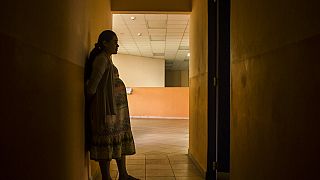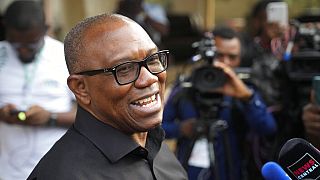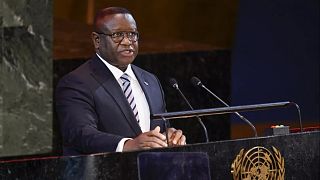Nigeria
Ada became a surrogate mother in Nigeria because her home owner threatened to evict her from their Lagos apartment along with her family.
And without resources, Ada thought carrying a child for others could earn her money.
‘‘I almost gave my life fo us to live where we were. Because at that moment the court were coming throw families out the houses and put their properties in the streets. I didn’t want to even think about that’‘, Ada said.
Ada recalls her husband will hear none of her ideas. She received two million naira or $ 5,500 for carrying and giving birth to twins.
Toyin is preparing her children for school. Her children were born with the help of a surrogate mother in India.
She had struggled for 12 years with uterine tumors. Today, Toyin runs an agency to help couples in Nigeria. Her Precious Conceptions Agency helps these couples make their dream of parenting a reality.
‘‘Surrogacy is in Nigeria and when you do it legally, you sign necessary papers, you get a lawyer, you get an agency like ours that put you through the process. You are safe! At the end of day, when the surrogate give birth, the hospital handover the baby to you directly’‘, Toyin said.
Claimant paid for her decent accommodation, her husband and children during the pregnancy. Experts say surrogacy has gone in Nigeria
Faye Iketubosin is a gynecologist.
‘‘The numbers in the last two years have really gone up. We have not only people who are resident in Nigeria, we have a lot of requests from the Europe, Nigerians living in the Europe, Nigerian living in the United States’‘, Faye said.
In Nigeria, surrogacy is frowned upon by mostly Evangelical Christians in the South and Imams in the North.
Here, there’s taboo around surrogacy and even more for mothers who use it. A couple who fail to conceive are often perceived as divine punishment. This is attributed to mostly women.
AFP reports that the absence of a legislation in Nigeria makes parents and surrogates very vulnerable to inadequate medical examinations, lack of psychological support and abuse of practice.
AFP











11:15
AI drones lead breakthrough against malaria in Africa [Business Africa]
01:05
Study finds millions of children at risk as global vaccine rates fall
Go to video
Evacuations begin: African citizens caught in Israel-Iran crossfire
02:08
Gunman attack in north-central Nigeria: death toll climbs to 150
01:14
Tinubu pardons the Ogoni Nine activists, 30 years after their execution
02:18
Nigerian animation shines at Annecy Film Festival